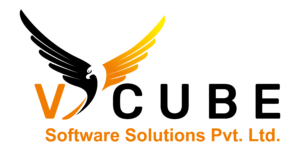ANGULAR 9 INTERVIEW QUESTIONS PART 1
Interview Questions
1.What is Angular?
- Angular 9 is a TypeScript-based development framework. To create scalable web applications, Angular includes a component-based framework. It also includes a set of well-integrated libraries with a variety of features, as well as a set of developer tools to assist you in developing, building, testing, and updating your code.
2.What are the benefits of Angular?
- First, it supports the “Model-View-Controller” (MVC) architecture. It helps with the separation of concerns by letting you isolate the application logic from the UI layer.
- Thanks to its architecture, Angular can be used to locate code that requires changes.
- “Angular Injector” supports services and dependency injection.
3.What is the difference between Angular and AngularJS?
- AngularJS is an open-source front-end framework built on javascript that is mostly used to develop single-page web apps.
Angular is a popular platform, typescript, and open-source online application framework created by Google for developing mobile and desktop web apps.
AngularJS’ code is written in Javascript.
Angular’s code is written in typescript
In AngularJS, a hierarchical dependency injection system is used.
In Angular, a dependency injection system is not recommended
Its applications are not compatible with mobile devices.
Angular applications are responsive to mobile devices
is used by AngularJS to give routing information.
4.Why was Angular developed?
- Before, developers used Vanilla JS and jQuery to develop dynamic websites. However, the code of bigger websites quickly became difficult to manage. That’s why client-side frameworks, like Angular 9, were developed. They help developers handle the separation of concerns and divide code into smaller bits of information, something that wasn’t possible earlier.
5.What are some of the advantages of Angular over other frameworks?
- Out-of-the-box features – Angular comes with a number of built-in features such as routing, state management, the rxjs library, and HTTP services. This means that the aforementioned features do not need to be sought separately. They are all supplied with an angular.
Declarative UI – Angular renders an application’s UI using HTML. HTML is a declarative language that is far more user-friendly than JavaScript.
Google’s long-term support for Angular – Google has announced long-term support for Angular. This means that Google intends to stick with Angular and expand its ecosystem.
6.Explain Components, Modules and Services in Angular
- Components :
Components are the basic building blocks in Angular that control a portion of the UI for any application.
The @Component decorator is used to define a component. Every component is made up of three parts: a template that loads the component’s view, a stylesheet that defines the component’s look and feel, and a class that contains the component’s business logic.
To create a component, open the command terminal and navigate to the directory of the newly created application, then run the following command: - generate component test ng
- Modules : A module is a container for components, directives, services, and pipes. By exporting or hiding these elements, the module determines whether the components, directives, and so on can be used by other modules. A @NgModule decorator is used to define each module.
Modules are classified into two types by default: - Feature Module Root Module
Each application can only have one root module, but it can have one or more feature modules.
A feature module imports CommonModule, whereas a root module imports BrowserModule. - Services : Services are objects that are only instantiated once during an application’s lifetime. The primary goal of a service is to share data and functions with the various components of an Angular application.
A @Injectable decorator is used to define a service. Any component or directive can call a function defined within a service.
7.How are Angular expressions different from JavaScript expressions?
- The first and perhaps most significant difference is that Angular expressions allow us to write JavaScript in HTML, which JavaScript expressions do not.
Following that, Angular expressions are evaluated against a local scope object, while JavaScript expressions are evaluated against a global window object.
As can be seen, an Angular expression is used to display a component’s message property. Because we are using Angular expressions, we cannot access a property outside of its local scope, which in this case is TestComponent, in the current template.
This demonstrates that Angular expressions are always evaluated with the scope object in mind rather than the global object.
8.Explain string interpolation and property binding in Angular.
- Data-binding in Angular 9 includes string interpolation and property binding.
Data-binding is an angular feature that allows you to communicate between the component (Model) and its view (HTML template).
There are two types of data binding: one-way binding and two-way binding.
Data from the component can be inserted into the HTML template in Angular. Any changes made to the component will be reflected directly inside the HTML template in one-way binding, but vice versa is not possible. In two-way binding, however, it is possible. - String interpolation and property binding can only be used for one-way data binding.
String interpolation displays data from the component using double curly braces. Angular automatically executes the expression contained within the curly braces; for example, 2 + 2 will be evaluated by Angular, and the result 4, will be displayed within the HTML template. We can bind an HTML element’s DOM properties to a component’s property using property binding. The square brackets [] syntax is used for property binding.
Upskill & Reskill For Your Future With Our Software Courses
Angular 9 Course in Hyderabad

Quick Links
- Home
- About Us
- Courses
- Contact Us
Other Pages
Contact Info
- 2nd Floor Above Raymond’s Clothing Store KPHB, Phase-1, Kukatpally, Hyderabad
- +91 7675070124, +91 9059456742
- contact@vcubegroup.com
